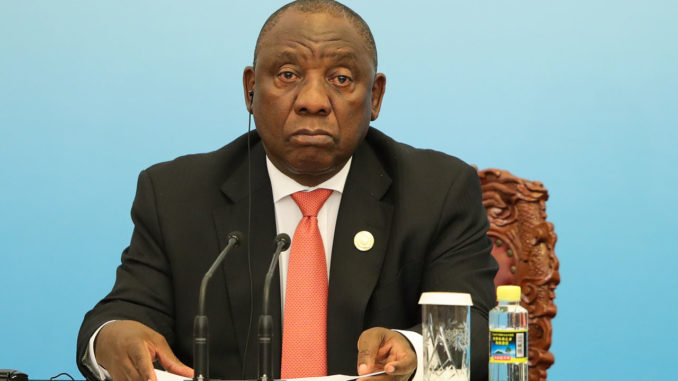
Cyril Ramaphosa is likely to be the last leader of the African National Congress to savour a majority. Rendered dysfunctional by infighting and riddled with corruption, the former liberation movement has failed to add to a core of mostly older and rural loyal voters. With millions of younger South Africans, mostly jobless and poorly educated, turning their backs on the political establishment, the trajectory of ANC support is now firmly in decline.
Twenty-five years after its first historic elections, South Africa’s political centre is just about holding but the results of this week’s elections suggest that populism is on the rise. The only parties to attract new voters this week have been on the far left and hard right. The fiery black-nationalist party the Economic Freedom Fighters [EFF] has increased its share of the vote from 6 per cent to 10 per cent.
Although it will retain control of the Western Cape province, which it has governed for a decade, the centrist Democratic Alliance has made few inroads nationally since the last national elections in 2014, when it won 22 per cent of the vote. Although the DA is winning new middle-class black voters, that trend has spooked conservative white and mixed-race Afrikaans speakers, who are now taking refuge with the conservative Freedom Front Plus party. Fears over chaotic Zimbabwe-style land grabs playing out in South Africa and the anti-white rhetoric of the EFF and elements of the ANC have also resulted in rural voters running to the Freedom Front, which at present holds four seats in parliament. The party is on track to triple its support since 2014, with a haul of about half a million votes, or 3 per cent of the total.
The Freedom Front leader Pieter Groenwald disputes that his party is racist or right-wing. He claims that his election campaign — promoting greater rights for minority groups, seeking to block land reform without compensation and limiting the continued enrichment of the black elite — was a vote winner across the country.
William Gumede, chairman of the political foundation Democracy Works, attributes the success of parties of the right and left to a natural response “to a crisis that is scary for many whites and blacks”.
“Populism is on the rise in South Africa, the patterns of voting have shown that clearly this week,” he said. “The more the ANC fails to deliver what the majority black population is crying out for, the more black populism will rise and the ‘white right’ emerges as a response.”
The trend can be stopped before it takes root, however, “but only if the ANC chooses to start governing inclusively and honestly”.
END

Be the first to comment